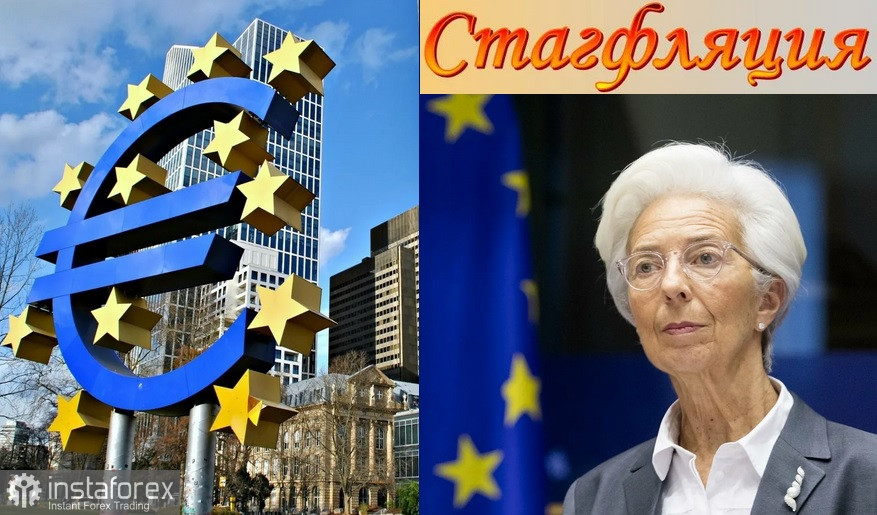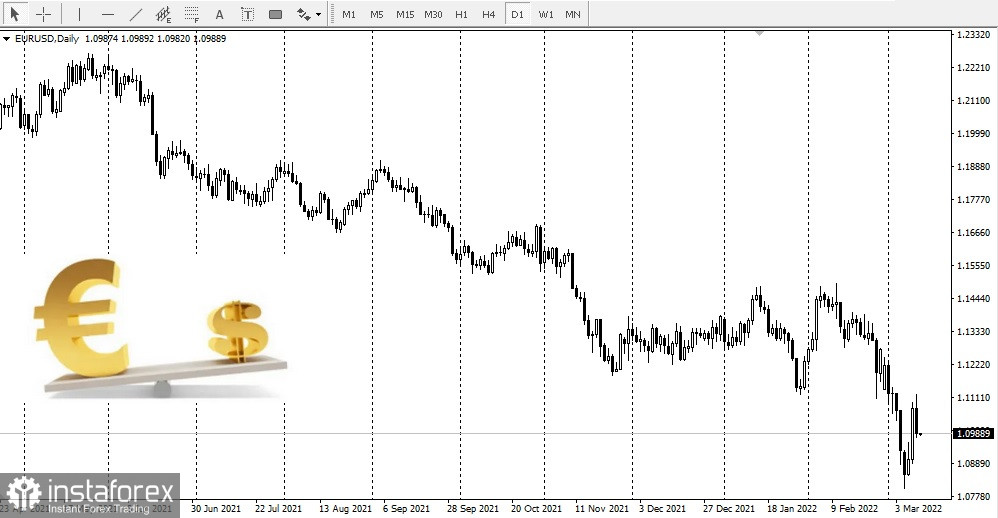
The European Central Bank acknowledged the growing risk of stagflation as it significantly lowers its growth forecasts and increases its inflation outlook
ECB President Christine Lagarde said that heightened geopolitical tensions in Ukraine had a profound impact on Europe's economy as energy and commodity prices continued to rise.
"The risks to the economic outlook have increased substantially with the Russian invasion of Ukraine and are tilted to the downside. While risks relating to the pandemic have declined, the war in Ukraine may have a stronger effect on economic sentiment and could worsen supply-side constraints again. Persistently high energy costs, together with a loss of confidence, could drag down demand more than expected and constrain consumption and investment," Lagarde said in her opening remarks.
In its latest economic projections, the ECB stated that GDP is expected to expand by 3.7% in 2022, down from the previous forecast of 4.2% growth. Economic activity is likely to increase by 2.8% next year, down from the prior forecast of 2.9%. The economy is expected to grow by 1.6% in 2024, unchanged from the previous forecast.
Estimating consumer prices, the ECB predicts that inflation will increase by 5.1% this year, up significantly from the previous forecast of 3.2%. Inflation is expected to rise by 2.1% next year, up from December's projection of 1.8%. According to forecasts, consumer prices will rise by 1.9% in 2024, up from the previous estimate of 1.8%.
Lagarde noted that inflation was currently being driven by rising energy prices, which had jumped 3.17% in February. She added that food prices were also increasing due to seasonal factors and rising fertilizer prices.
Although inflation is expected to remain elevated, Lagarde said she did not observe a paradigm shift in consumer prices. She added that the ECB did not see a wage spiral that would lead to long-term inflation.
"Price rises have become more widespread. Most measures of underlying inflation have risen over recent months to levels above 2%. However, it is uncertain how persistent the rise in these indicators will be, given the role of temporary pandemic-related factors and the indirect effects of higher energy prices," Lagarde said.
Some economists have noted that the ECB is prioritizing rising inflation over economic growth as it looks to end its monthly bond purchases by the third quarter, highlighted in the ECB monetary policy statement.
Lagarde also stated that the decision to end quantitative easing would be data-dependent and if inflation rose in line with expectations. However, she pushed back on the idea that this action was considered as tightening.
"We are not talking about tightening. We are talking about normalizing," she said.






















